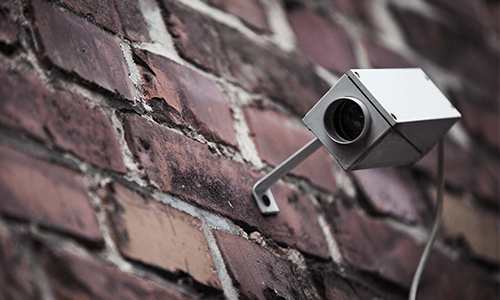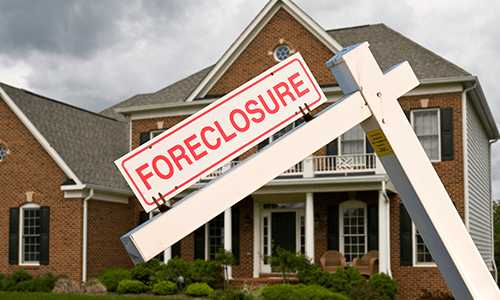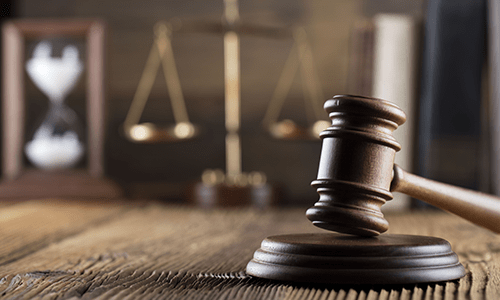A debate on surveillance is often one between security, privacy and finances. With increased access to low cost, higher quality equipment, boards are being requested to step up security to combat against increased crime. However, there are legal issues a board should consider and multiple steps to take to protect an association from the very high cost of avoidable litigation.
Governing documents may require a board to provide security. Even without a specific statutory mandate or language in the governing documents a board shall act within its fiduciary duty. A board is charged to act with reasonable and/or due care when the need arises, to prevent harm from foreseeable danger and/or criminal activity; failure to do so may result in claims for breach of duty, privacy claims and federal housing claims among a few. A board is charged to act with reasonable or due care when it undertakes safety measures whether there is a duty, and failure to do so may result in a charge of negligence or even a violation of privacy. Lastly, issues between owners are generally not board responsibility but when conflict escalates over time, police called, grievances filed, a board may have a duty under their declaration and/or other laws to protect its owners from each other.
The below cases discuss these principles. Frances T. v. Village Green Owners Assn, 723 P. 2d 573 (Calif. Supreme Ct. 1986) discussed negligence and breach of duty for no exterior lighting in a crime driven neighborhood. In Morgan v. 253 East Delaware Condo Assn, 231 Ill.App.3d 208 (1st Dist. 1992) the association documents did not create a duty. Only duty is if harm is reasonably foreseeable, undertaking is negligent and it must be proximate cause. The court found in Reeves v. Carrollsburg Condo Unit Owners Assn., District of Columbia District Court, Case No. 1:96-cv-02495 (open since 1999) failure to enforce the associations covenants and to protect one owner from another’s perpetual harassment and defamation, may represent a possible violation of the Federal Fair Housing Act. See also, Martinez v. Woodmar IV Condo Homeowners Assn, Inc., 941 P. 2d 218 (Ariz. 1997); Atrium Unit Owners Association v. King, 585 S.E.2d 545 (Virginia Supreme Ct. 2003) and Vazquez v. Lago Grande Homeowners Assn, 900 So. 2d 587 (D.C. of App FL 2004). Nader v. Carlyle Condos, (2010-Ohio-4359).
The next step will be for the board to perform a security threat assessment. A board needs to determine what money it can allot to such project which it is mandated to do and determine the objectives of security for its association. The Board should consult a security consultant to help determine whether cameras or other forms of surveillance or security are necessary and what equipment is best for each specific purpose. Today there are so many options that it is easy to get drawn in by the device rather than concentrate on the need of the association. The security consultant will provide information on how to find a company that is licensed with vetted technicians, that will provide good customer care and technical support. In a relationship such as this one, it is important to have a company that can perform all services so you can hold them accountable. Also, any single measure is rarely the solution, measures should be integrated and the consultant will be able to assist with this.
The project should then be previewed at a homeowner meeting along with a previously distributed technology policy that will set out the purpose of the technology, what it will and will not do, who is affected or has a duty under the policy, how the data is to be stored and for how long (with advances in technology the ability to retain the records is endless), and how it may be accessed. Advise your insurance and you may get a discount. Boards should as well stay clear of statements such as the property is ‘secure’ and should never imply that guard’s, doorpersons, or other employees are present for personal security, only to watch out for property, unless they are. Often used dummy cameras are dangerous and fall into the don’t ever do category. If the owners believe it is real, a false sense of safety is created and the board could be found liable if resultant damage is the proximate result of the board’s negligence.
What About Privacy?
Where can cameras and other surveillance be placed? Cameras may be placed anywhere the association has the authority to exert control, excluding the personal residences or property bathrooms, locker rooms, etc., where there is a reasonable expectation of privacy. There is no expectation of privacy in the common areas. If a board installs or permits surveillance, it must ensure the recordings, both video and audio, if any, do not violate state or federal law. In Illinois and many other jurisdictions an audio recording may not be made of another even in common areas without that person’s consent. Depending where it might occur it is a violation of the Federal Wiretap Act and/or the Il Eavesdropping Law. An oversimplified summation of the laws a board must be aware of is that a camera may not be pointed towards any area where there is a reasonable expectation of privacy. Since these laws also encompass audio, a board should be extremely cautious if it decides to install a camera that records audio.
Surveillance Cameras and Privacy Laws
- A. 720 ILCS 5/14-2: “A person commits eavesdropping when he or she knowingly and intentionally: (1) Uses an eavesdropping device, in a surreptitious manner, for the purpose of overhearing, transmitting, or recording all or part of any private conversation to which he or she is not a party unless he or she does so with the consent of all parties to the private conversation.”
- B. 720 ILCS 5/26-4(a): “It is unlawful for any person to knowingly make a video record or transmit live video of another person without that person’s consent in a restroom, tanning bed, tanning salon, locker room, changing room, or hotel bedroom. (a-5) It is unlawful for any person to knowingly make a video record or transmit live video of another person in that other person’s residence without that person’s consent. (a-6) It is unlawful for any person to knowingly make a video record or transmit live video of another person in that other person’s residence without that person’s consent when the recording or transmission is made outside that person’s residence by use of an audio or video device that records or transmits from a remote location.”
- C. Intrusion Upon Seclusion: This common law claim includes the following elements: “(1) an unauthorized intrusion or prying into the plaintiff’s seclusion; (2) an intrusion that is highly offensive or objectionable to a reasonable person; (3) that the matter upon which the intrusion occurs is private; and (4) the intrusion causes anguish and suffering.” Jacobson v. CBS Broad, Inc., 19 N.E. 3d 1165, 1180 (2014).
- D. 18 U.S. Code §2511: The Federal Wiretapping Act could apply to the audio captured by the Cameras. This is a criminal law that requires prosecution by a federal agency.
Conclusion
Best practices require a board to be educated, perform a threat assessment, discuss and vote based upon due diligence research in open session, and undertake measures to ensure compliance with state and federal laws. Keeping the process in balance is safe for everyone and will protect the board if litigation should ever arise. And remember, the most effective method of security is any plan tailored to the needs of the association.





 CAI - Illinois Chapter
CAI - Illinois Chapter 


